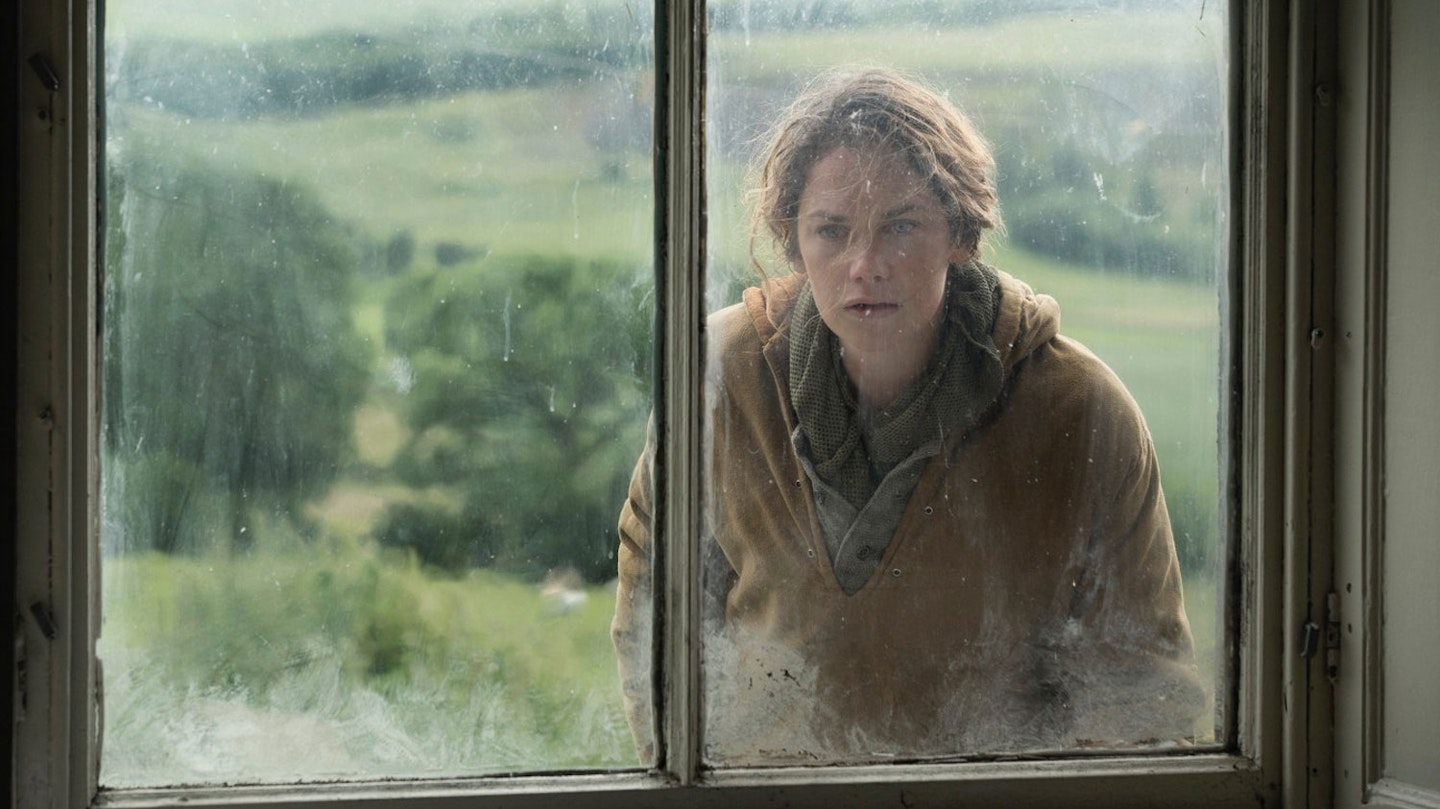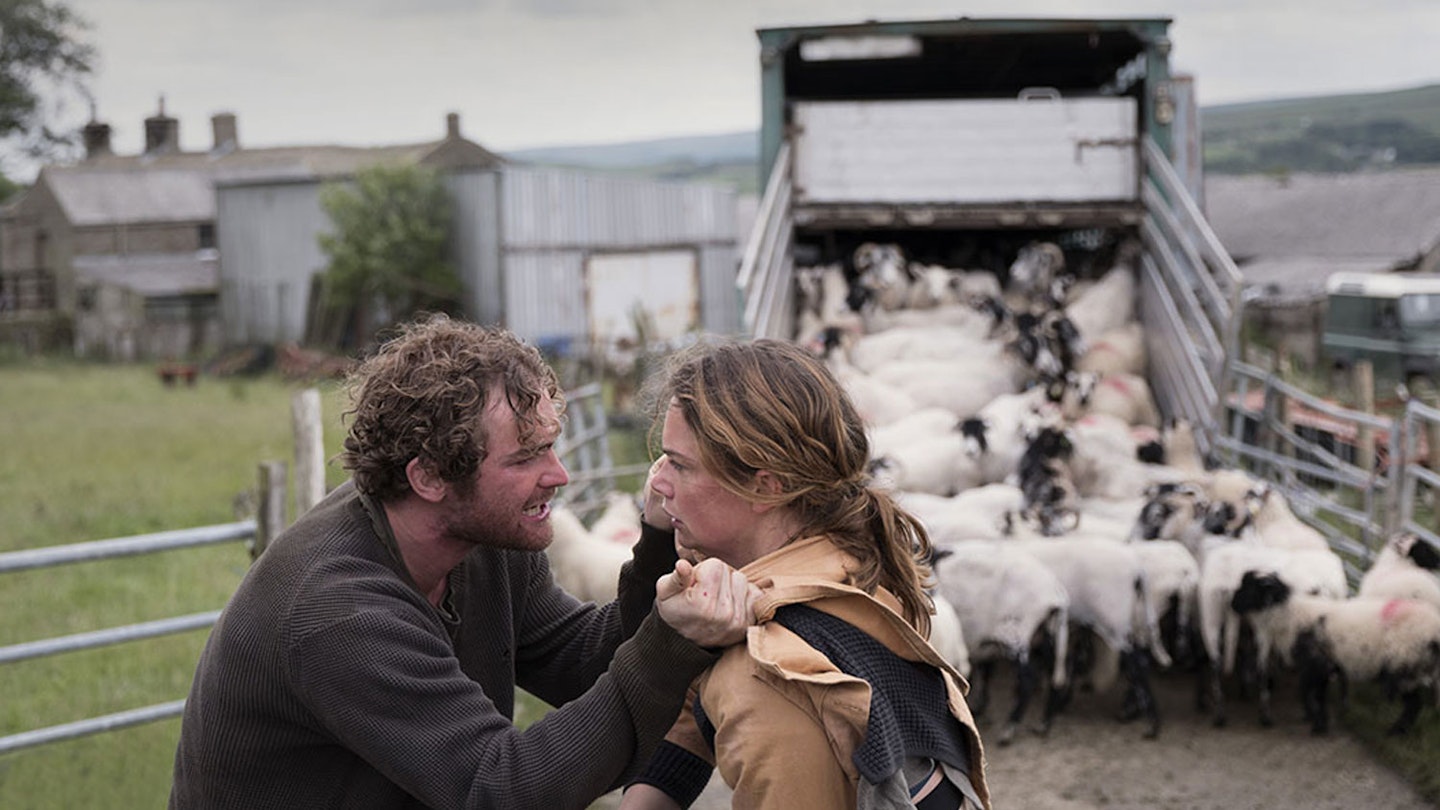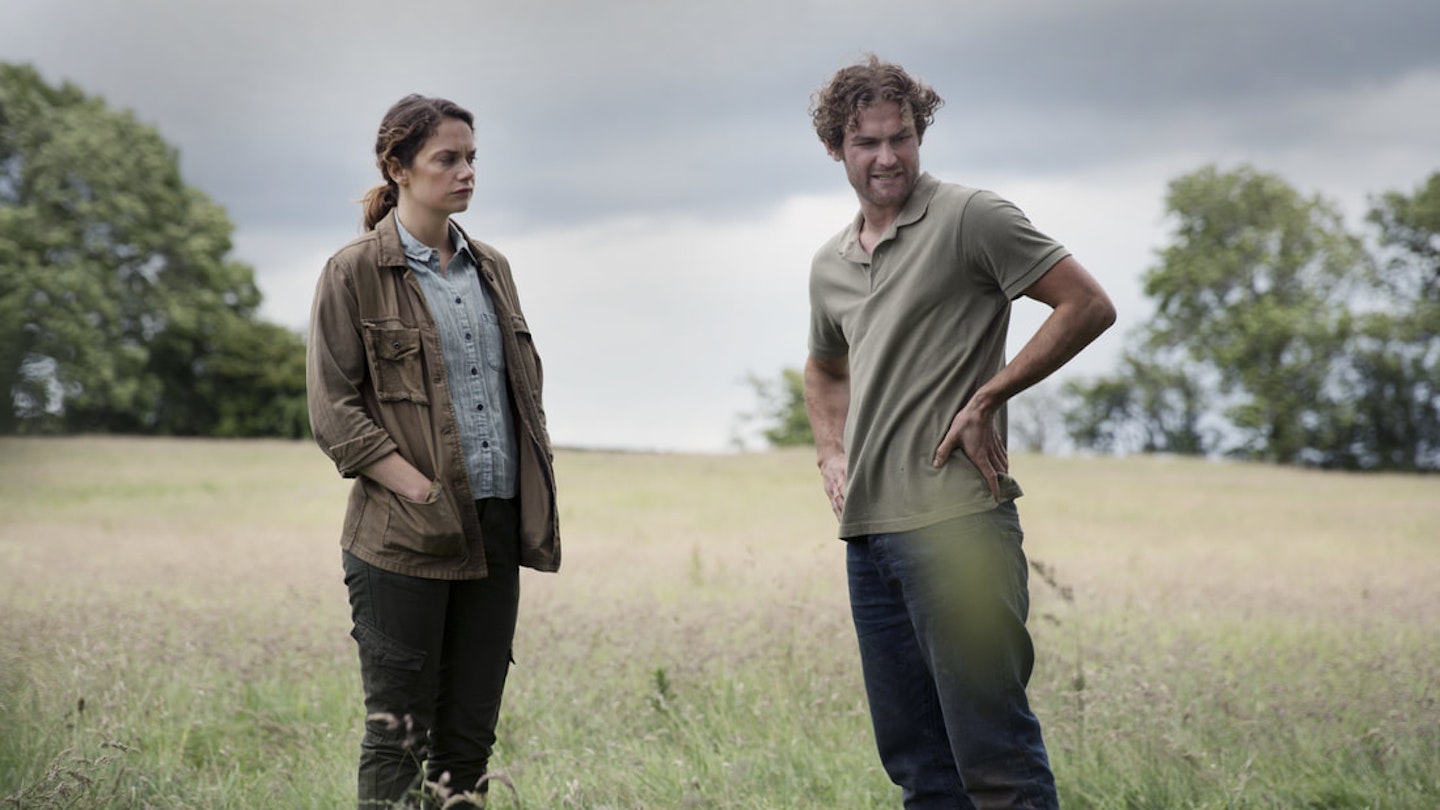Fans of gritty dramas about alienated people staring over the Yorkshire moors are being spoiled at the moment. And while there’s much to commend it, arthouse doyenne Clio Barnard’s Dark River is sadly the Deep Impact to God’s Own Country’s Armageddon. This is a film made with great thought and care, and it’s not its fault that it comes out after its superior counterpart, but in truth, if you only have so much time to spare, it’s Francis Lee’s God’s Own Country you want.
The only thing crueller than the release schedule here is the Yorkshire landscape, which is rapidly becoming to British film what the frontier was to Westerns: a wild, elemental stage for dramas about Big Themes to play out in. After her namecheck in The Commuter, Emily Brontë is having a resurgence down the pictures — here’s hoping it continues.
Indeed, there’s a lot in Dark River that could be from a 19th century novel. There’s a big house at its core, there’s a near-death from exposure in the wilderness, and its central conflict revolves around who left the family home and who stayed. More contemporary is the frankness about sexual abuse.
Mercifully, we’re spared the details, but the family house Alice returns to is one big trigger warning — we’re served abrupt cuts to the past where her younger self (Esme Creed-Miles) is menaced by her father, played by Sean Bean.
Bean’s a smart piece of casting: he’s as Yorkshire as hating Lancashire, and that craggy face’s capacity for menace is fully exploited here. He has next to no dialogue, but still turns in a fully realised character, playing this abuser not as a vampire but as conflicted, ingratiating and ultimately pathetic.
The two actors at the film’s core have more to do, and it’s nice seeing Wilson get the showcase she deserves. Not only has she put the prep time in — she sheers sheep like a pro — but she also skilfully conveys the passing clouds of trauma and need that lie behind Alice’s stand-offish front. It’s a corking performance that keeps the more soapy elements grounded, and gives nuance to the ‘Gritty BAFTA’ strain that’s dangerously close to the film’s raison d’être.

Ruth Wilson being great is hardly stop-the-presses news, but Mark Stanley — Grenn from Game Of Thrones — more than holds his own as her brother. He’s been quietly building a solid career post-Thrones — watch out for him in the underseen Kajaki — and here he turns in one of the scarier drunken rampages of recent years. There’s an extended sequence where his relationship with Wilson collapses in a fashion both horribly real and groundedly operatic.
And that’s Dark River’s biggest strength. Barnard is interested in realism’s relationship with reality, and for all the mundane trappings here, this is a folk tale of a film, where grand questions are addressed in a quotidian context. It’s just a shame God’s Own Country came out first.

